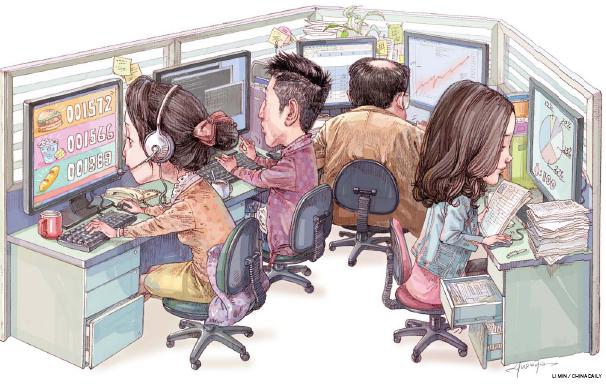Process in place
Updated: 2011-05-20 10:45
By Zhang Jing (China Daily European Weekly)

Chinese outsourcing providers are upping the ante to gain more customers and business amid stiff competition from other outsourcing majors like India and the Philippines.
Backed by a slew of industry-friendly policies and other inherent advantages like low cost and the growing tribe of English-speaking people, Chinese outsourcing companies are now making a move up the ladder and grabbing projects at the upper end of the value chain.
"The world is flat," says Liu Ning, general manager of business process outsourcing (BPO) provider CompuPacific International (CPI), quoting the well-known book written by Thomas L. Friedman to explain China's meteoric rise.
|
 |
Based in Xi'an, the capital city of Shaanxi province in Northwest China, CPI has been ranked by consultancy firm Gartner as the biggest BPO company for US outsourced business in China.
Liu says the rapid development of the Internet in the past 15 years has led to a cyclic shift in the business model of companies. "It has moved from trading commodities to trading services."
Invisible services are being realized through the Internet and there is a growing need across the world to reshuffle resources and the process of business to developing countries like India and China, Liu says.
Friedman quotes in his bestseller the words of former Infosys chief executive Nandan Nilekani: "Hundreds of millions of dollars were invested in putting broadband connectivity around the world, undersea cables At the same time, computers became cheaper and dispersed all over the world and there was an explosion of software, e-mail, search engines like Google, and proprietary software that can chop up any piece of work and send one part to Boston, one part to Bangalore, and one part to Beijing, making it easy for anyone to do remote development."
E-paper

Green works
Wuxi becomes 'test case' for facing country's environmental challenges
Preview of the coming issue
The global rise of Chinese brands
China-EU trade on solid ground
Specials

The song dynasty
There are MORE THAN 300 types of Chinese operas but two POPULAR varieties are major standouts

Cut above the rest
One of the world's oldest surgeons has performed more than 14,000 operations

From the ground up
Architect of Guangzhou Opera House has many projects under way, including 2012 Olympics.







